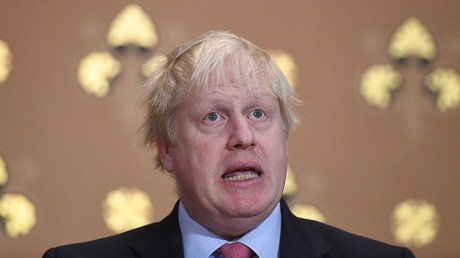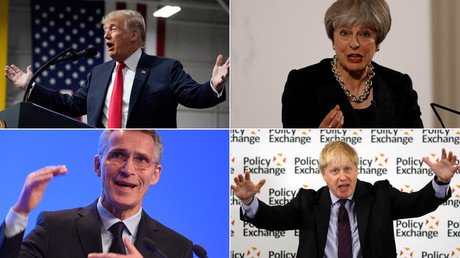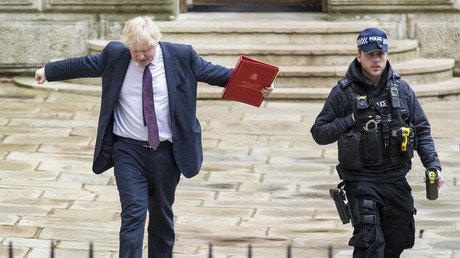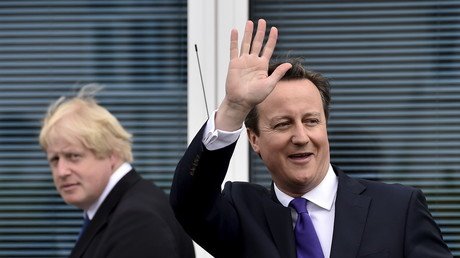Sudo-history: BoJo likens Crimea’s accession to Russia to Nazis’ occupation of Czechoslovakia
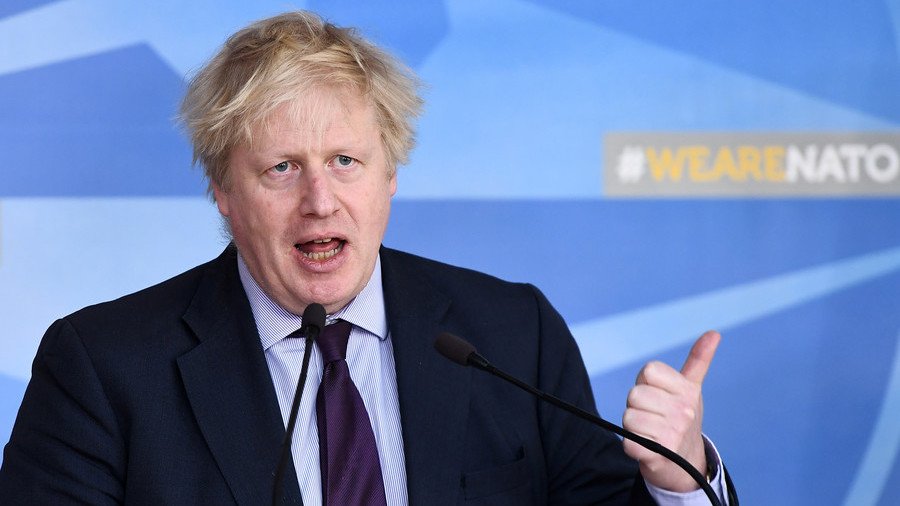
UK Foreign Secretary Boris Johnson seems to have become fixated on comparing Russia with Nazi Germany. Most recently, he has likened Crimea’s reunification with Russia to Hitler’s annexation of the Sudetenland.
The trouble with raising the specter of an enemy is that one can very easily take it too far. Johnson has apparently been so gripped by hysterical Russophobia that he has started seeing parallels between Russia and its sworn enemy, the Third Reich.
In his latest outburst to the Foreign Affairs Select Committee, he went as far as to claim that Crimea joining Russia, following an overwhelmingly supportive referendum in March 2014, was similar to the partial occupation of what was then Czechoslovakia by Hitler’s forces back in 1938. Johnson then claimed that it was “wholly apposite” to draw such comparisons between the Nazis then and Russia now.
“Russia annexed a sovereign European territory,” the foreign secretary said of Crimea. He then emphatically pointed out that “we did not do anything about the Sudetenland, you know,” referring to European leaders’ decision to allow the peripheral Czechoslovak territories to be annexed by the Nazis. Later on, using their position behind the Czechoslovak defenses, the Wehrmacht were able to enter Prague unopposed.
Johnson warned that Europe’s failure to stand up to what he called Russia’s “pattern of provocative behavior” would encourage the Kremlin in its “revanchist feeling.” He attempted to scare Europe further by claiming that a lack of action on Moscow’s “assertive” policy would be similar to the appeasement of Adolf Hitler.
As he made his far-reaching conclusions, Johnson completely neglected one fact: It was the West, namely France and the UK itself, which “sold” Czechoslovakia to Hitler by signing the 1938 Munich Agreement. Better known as the ‘Munich Betrayal’, the treaty allowed Nazi Germany to annex parts of Czechoslovakia.
'Scary' that Boris Johnson represents a nuclear power – Russian Foreign Ministry spokeswoman https://t.co/ONDyC8Hkkppic.twitter.com/ZED4Z6pEdT
— RT (@RT_com) March 21, 2018
The pact was signed by Hitler and Italian Fascist dictator Benito Mussolini – as well as Britain’s then-Prime Minister Neville Chamberlain and his French counterpart Edouard Daladier. Notable by its absence was the Soviet Union, and even Czechoslovakia’s leadership did not take part in the negotiations on the agreement.
The British media has apparently fallen victim to this selective historical amnesia. The Daily Express, for example, briefly mentioned in its piece that Chamberlain merely “refused to intervene” when Hitler’s forces occupied the territory.
It is not the first time Johnson has allowed himself to make such far-fetched comparisons. On March 21, he likened Russia’s hosting of this year’s World Cup to the 1936 Olympics in Nazi Germany, adding that such a “comparison with 1936 is certainly right.”
This provoked an angry reaction from Moscow. The Kremlin spokesman Dmitry Peskov denounced Johnson’s words as “totally disgusting” and “not appropriate for any foreign minister.”
Johnson is no stranger to statements that encourage a distorted view of Russia. For example, he has publically claimed that getting rid of former spies is just a part of Russian nature. In his opinion piece for the Washington Post, he called the poisoning of double agent Sergei Skripal nothing other than the manifestation of “blatant Russian-ness.”
It almost goes without saying that Johnson never bothered to provide even the slightest proof to substantiate his claims. Instead, he trumpeted the “overwhelming support” that the UK received from other western countries following the poisoning of Skripal. Johnson interpreted this as a clear sign that the whole “Western world” shares his take on Russia’s “provocative behavior.”
On March 4, Skripal, 66, and his 33-year-old daughter were found unconscious on a bench outside a shopping center in the British town of Salisbury. Police later said they had been poisoned with some sort of a Soviet-era nerve agent. London was quick to blame Moscow for the incident and its Western allies were quick to join in, even though no solid evidence of Russian involvement in the incident has been presented so far.
Russia has repeatedly denied having anything to do with the poisoning of Skripal. Moscow has offered cooperation in the probe and demanded the details be shared, as it involves Russian citizens.
